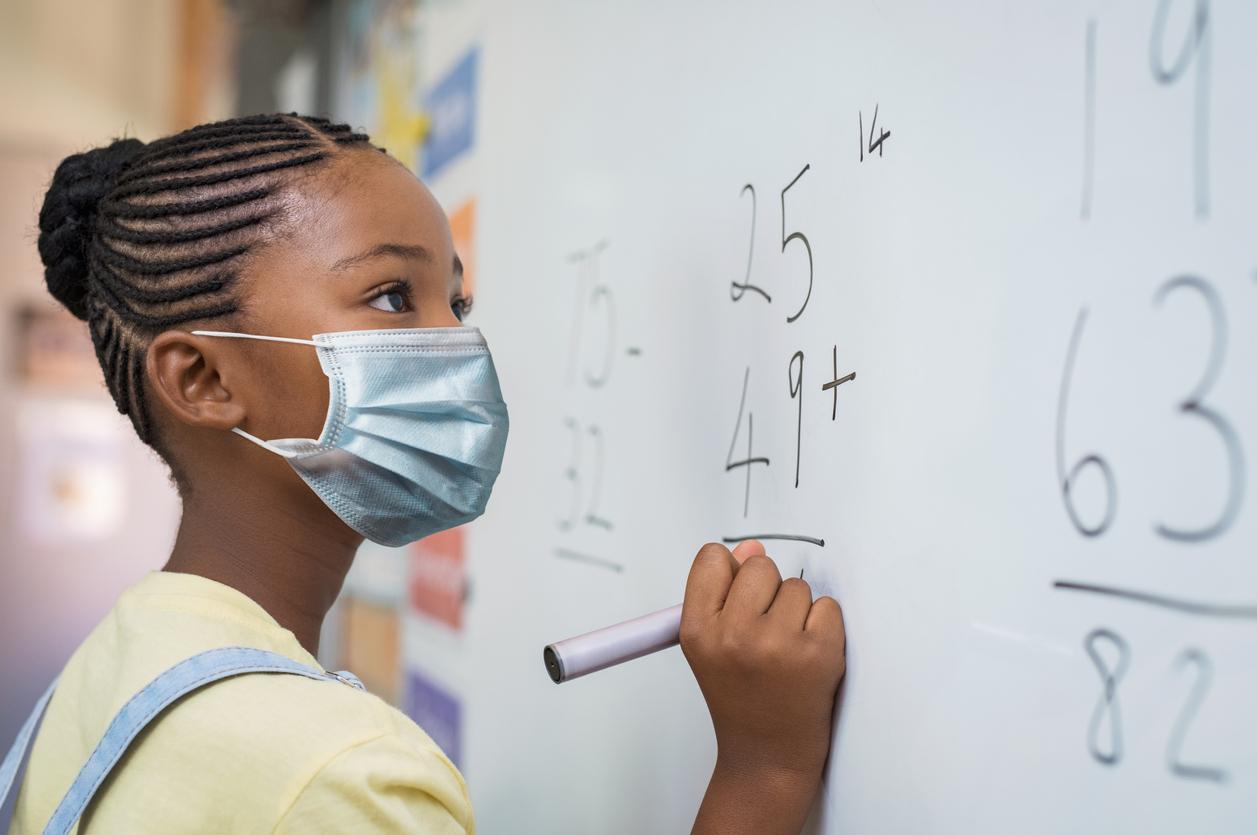"The coming weeks are going to be challenging, but we have the tools we need to keep our school open."
Jeff Zients, the White House COVID-19 coordinator, addressed the colossal surge of Omicron COVID-19 cases in the country, but said 96% of schools are open, and should stay open during this latest phase of the pandemic, during today's press briefing from the White House.
"The bottom line is we have the tools to manage the surge," he said during a White House briefing on the pandemic. Zients said the president, the majority of parents, and experts in education are committed to in-person learning in the coming weeks.
Zients's statement could be read as a comment on the Chicago Teacher's Union vote yesterday to begin remote learning in light of the Omicron variant, making it the largest school district in the country to do so. The union said Mayor Lori Lightfoot, who has been vocal about keeping classrooms open, was endangering the health of students and staff.
Centers for Disease Control and Prevention (CDC) Director Rochelle Walensky, MD, MPH, said the 7-day daily average of new cases rose to 491,700 per day, a 98% increase from the previous week.
The United States reported 869,187 new COVID-19 cases yesterday, and 2,384 deaths, according to the Johns Hopkins COVID-19 tracker.
CDC sticks to 5-day isolation
At the meeting, Walensky also defended the CDC's new guidelines for quarantine and isolation after positive testing.
The new guidelines suggest that people who come into close contact with a COVID-19 positive case do not need to quarantine if they have completed their two-dose primary vaccine series (children 5 to 17), or if they have been boosted or completed their primary series within 6 months. People who have a documented COVID-19 infection in the past 90 days also do not need to quarantine.
Isolation should occur after a positive test for 5 days, then a case-patient should wear a mask for an additional 5 days. A negative test is not required on day 5, the CDC said, but if a test is taken and positive, people should continue to isolate until day 10.
"Take a test if you have symptoms," Walensky said. "Or if you want extra assurance before gathering with others."
Walensky also said 95% of the cases currently in the United States are caused by the Omicron variant.
ACIP greenlights boosters for kids ages 12 to 15
Today during a meeting of the Advisory Committee on Immunization Practices (ACIP), the advisory group to the CDC, experts decided to recommend the use of booster vaccine dose in 12- to 15-year-olds who have completed their primary series 5 or more months ago. The group also said 16- and 17-year-olds should get a booster.
Much of the meeting's discussion was concerned with the possible increased risk of myocarditis, or inflammation of the heart muscle, in kids who get a third dose of the mRNA vaccine made by Pfizer and BioNTech.
For kids ages 12 to 17, myocarditis is most likely to develop after the second dose of vaccine, where it appears at a rate of roughly 70 cases per 1 million doses administered.
Sharon Alroy-Preis, MD, MPH, of Israel's health ministry, presented data on myocarditis and booster doses in Israel. Out of 41,000 booster doses, only two cases of myocarditis have been recorded.
But throughout the meeting, members emphasized that too many 12- to 17-year-olds are unvaccinated, and boosters would likely do little to stop the current surge of cases.
The CDC COVID Data Tracker shows 62.2% of Americans are fully vaccinated against COVID-19, 73.8% have received at least one dose of vaccine, and 34.7% of fully vaccinated Americans have received a booster dose.
Other US developments
- At least three major health systems in Florida said yesterday that half of their COVID-19 patients were originally admitted to the hospital for other reasons, ABC News reports. Gov. Ron DeSantis called on the US Department of Health and Human Services to change the way it reports COVID-19 hospitalizations.
- Ohio, Maryland, Delaware, and Georgia are among the states that have mobilized National Guard members in the last week to assist hospitals with patient care, according to CNN.





















